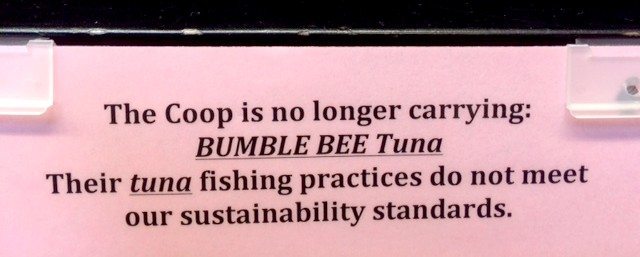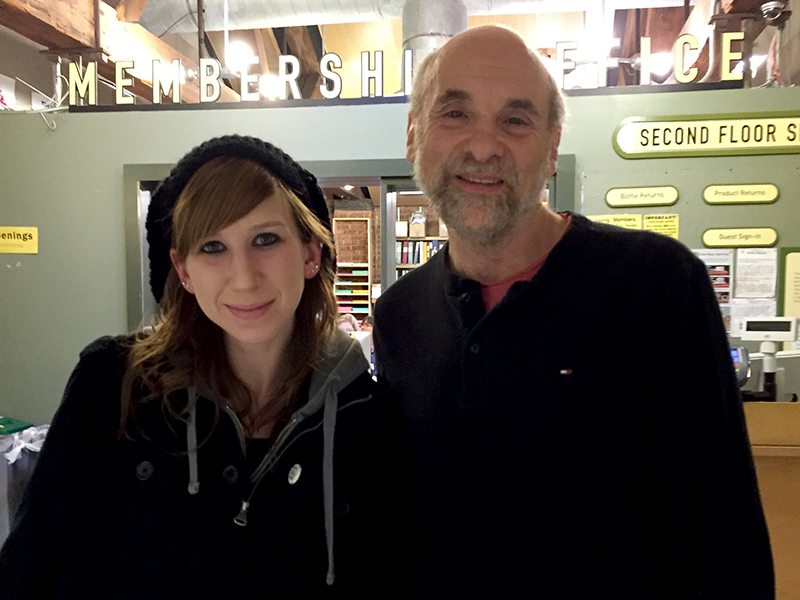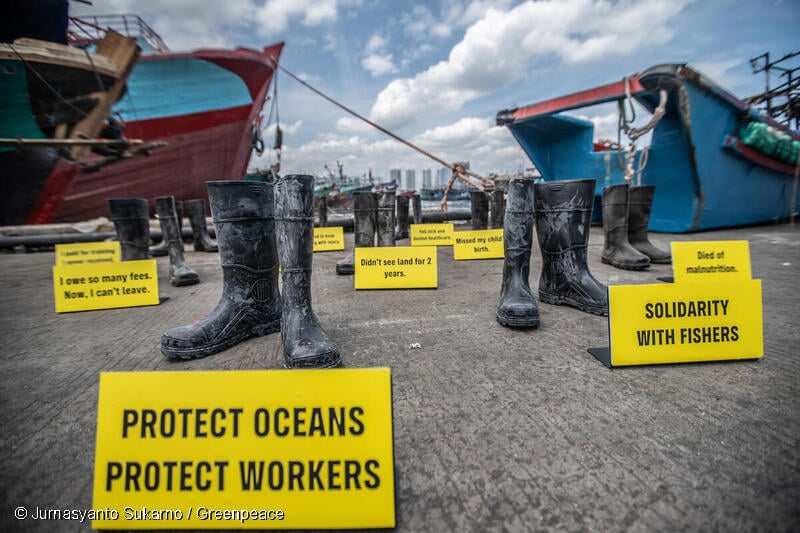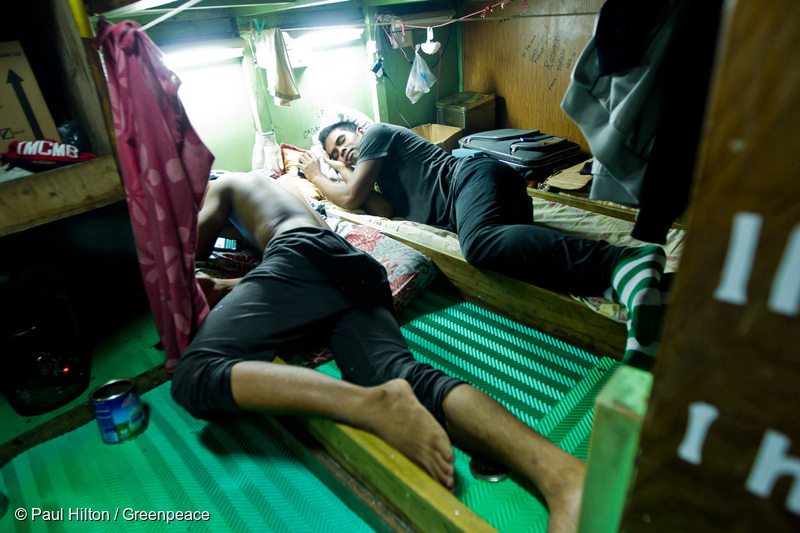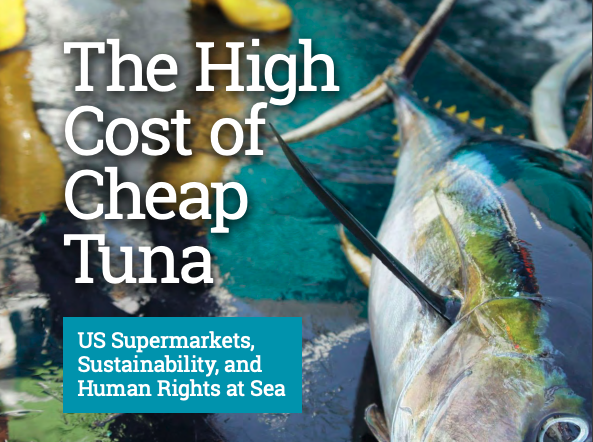Yello Goller spent a year building a movement at her local food coop to ditch Bumble Bee tuna, a brand tied to ocean destruction. This is her story.

What if big tuna brands could learn from every grocery store in America that we, the consumers, demand the protection of our oceans and the rights of seafood workers? In October 2015, that’s exactly what happened at the Park Slope Food Coop, a community of 16,400 shoppers in Brooklyn, New York.
I first joined the coop in October 2014. I went to a new member orientation meeting where I learned about the history of the coop, its bylaws and policies. It made me proud to be part of a community that I felt shared the same values as I did and rigidly applied standards to its food purchasing practices. Then I did my first short shopping spree. I was walking towards the express checkout line when I saw the familiar Bumble Bee tuna cans.
Pretty much on the spot, I vowed to do something about it.
At the time, I didn’t know how much support I was going to receive from my like-minded, eco-conscious coop members.
I first learned about the problems with Bumble Bee tuna working as a Greenpeace canvasser and volunteering on campaigns. Companies like Bumble Bee use destructive fishing methods that inadvertently kill sharks, sea turtles, and juvenile tuna. Beyond that, major U.S. tuna brands haven’t been able to guarantee that their employees have safe working conditions and are not connected to human rights abuses rampant in the seafood industry (learn more via the New York Times, Associated Press, and fisherman testimonies).
I first spoke about Bumble Bee at the November 2014 coop members monthly meeting in an auditorium packed with several hundred people. After ten minutes of voicing my concerns and advocating for change at our coop, I was pleasantly greeted with cheers and applause. It was then that I went from being nervous speaking out in front of a crowd to adoring every single individual in the room. It was clear that we all shared the same understanding of what was at stake, and how buying a can of tuna means so much more than it would appear on the surface.
We as a coop wanted to buy responsibly.
At the September 2015 meeting, I made my final presentation on Bumble Bee, to be followed by an open discussion among coop members. During that discussion, one person addressed the high levels of mercury in some tuna species to make the case that “nobody should be eating tuna, even the brands that meet fishing standards.”
Coop General Coordinator Joe Holtz stated his concern that, because Bumble Bee was the cheapest brand, members unable to pay more would be at a disadvantage. He said he was committed to “looking for a good canned tuna that’s less expensive,” adding that the coop had been “very deliberate in moving in the right direction.”
Then, someone asked for a straw vote to see how many people were in favor of dropping Bumble Bee from the coop’s shelves. Sitting in the front row, I turned around to find a beautiful sea of hands and found myself holding back a joyous sea of tears. We did it!
It was a learning experience, watching people come together to make the choice for a better planet. I love that my community not only gave me the strength to pass on the knowledge I had gained, but also chose to take action. None of us want to buy products that support destructive fishing or may exploit workers and now we don’t have to.
As of October 23, 2015, the Park Slope Food Coop has officially stopped buying Bumble Bee tuna!
As Joe put it, “The most important thing is that we need organizations like the coop to live up to their words. We need stores, organizations and people to walk their talk.”
In addition to no longer buying Bumble Bee, the coop has sent letters to Bumble Bee, StarKist and Chicken of the Sea to share our collective disapproval of their destructive business practices and call on them to do better.
What if what we did at the coop resonated across the country? What if grocery stores across America heard from their customers demanding sustainable and responsible tuna? It would send a message to the largest offending tuna brands — Bumble Bee, StarKist and Chicken of the Sea — that could not be ignored.
In writing this story, it’s my hope that more people will feel inspired to stand up and speak out for the responsible tuna we deserve.
Solutions exist, and it’s time that the three biggest tuna brands in the United States and major supermarkets nationwide start walking the talk. If you’re ready to take action for healthy oceans, join me at the Greenpeace Ocean Action Team on Greenwire to connect with volunteers nationwide. And tell these tuna brands to stop supporting destructive fishing!
Yello Goller has worked as a Campaign Coordinator for Greenpeace’s New York City volunteer program and as a Frontline fundraiser. She was a volunteer deckhand on the Esperanza ship while touring the West Coast of Canada for the People Vs. Oil campaign.

